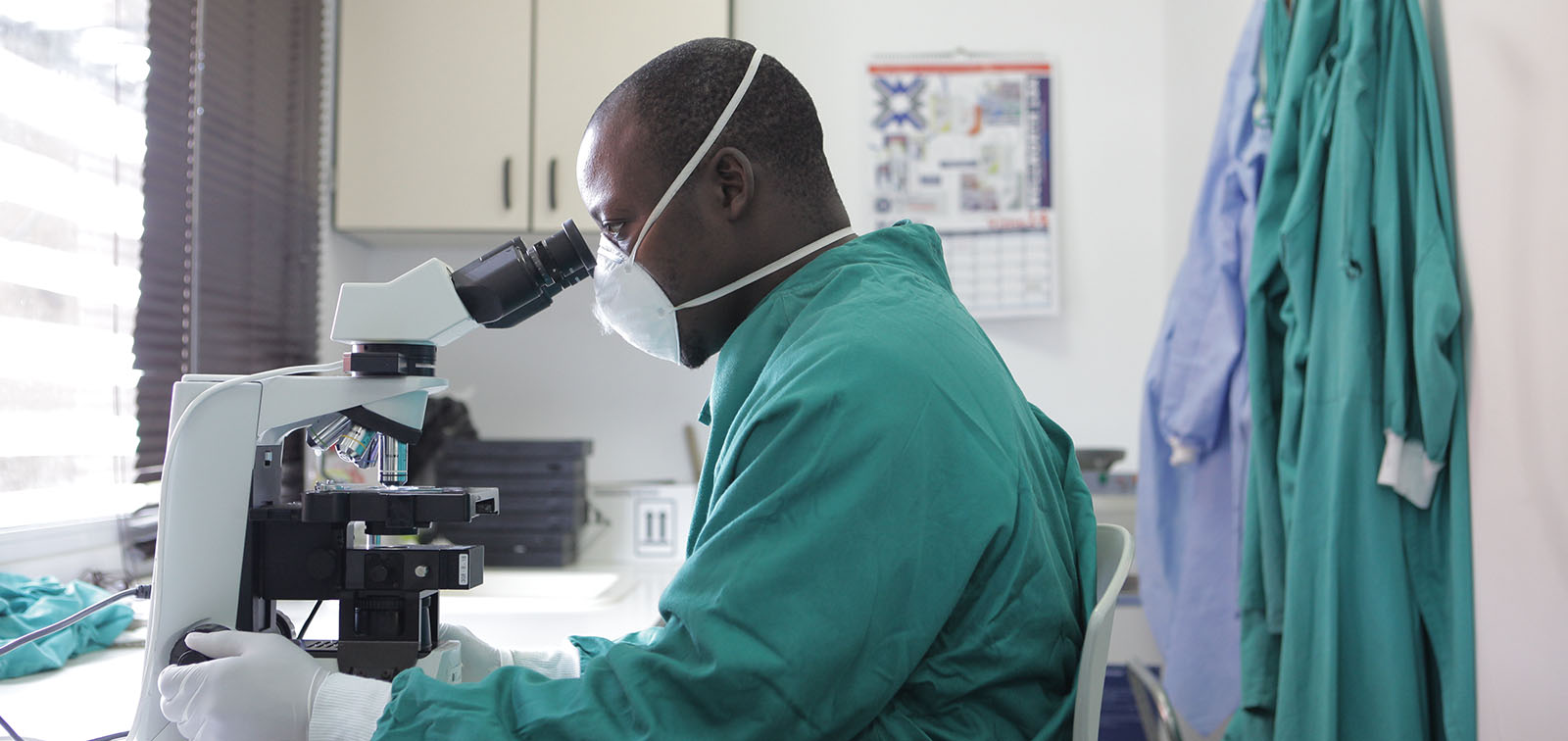STool4TB Will Evaluate an Innovative TB Diagnostic Tool in Children and People Living with HIV
The project will also create a pediatric TB diagnostic network among European and African high TB burden countries
20.01.2021
STool4TB, a large international 4-year project which aims at evaluating a new stool-based qPCR for diagnosis of tuberculosis in children and people living with HIV held its kick-off meeting last week. Funded by the European & Developing Countries Clinical Trials Partnership (EDCTP), the project is coordinated by Alberto García-Basteiro at the Barcelona Institute for Global Health, ISGlobal, and involves two other European partners (Amsterdam Institute for Global Health and Development, AIGHD, and the Research Center Borstel in Germany) and three African institutions (Centro de Investigação em Saude de Manhiça in Mozambique, Makerere University in Uganda, and Baylor Foundation Eswatini in Eswatini). In addition, Baylor College of Medicine in Houston, United States, will be a collaborating institution of STool4TB.
Tuberculosis (TB) continues to be a leading cause of morbidity and mortality among children and people living with HIV (PLHIV). Despite significant progress in TB diagnostics, TB laboratory confirmation is particularly challenging in children and PLHIV given the difficulty in obtaining sputum samples, and the pauci-bacillary nature of disease. In consequence, bacteriological confirmation of pulmonary TB in young children and immunosuppressed PLHIV remains disappointingly low.
Inability to bacteriologically confirm TB results in both: under diagnosis, which leads to worse outcomes including increased mortality, and over (mis)diagnosis, and poor resource allocation. Given the limitations of currently available sputum-based diagnostic tests in these vulnerable populations, there is a need to develop new tools and identify easy to collect non-respiratory specimens which, combined, could improve bacteriological confirmation.
STool4TB will validate an innovative stool homogenization and DNA isolation method that yields a highly sensitive and specific Mtb qPCR-based diagnostic. The project will evaluate this platform in the high TB and HIV burden settings of Mozambique, Eswatini and Uganda, under the hypothesis that it will narrow the large TB case detection gap by improving TB confirmation rates in children and HIV-positive adults, while proving feasible and acceptable.
“Preliminary data suggest that this platform adds value to existing sputum-based diagnostics and increases rates of bacteriological confirmation. Indeed, it has the potential to be adapted to a POC diagnostic and thus easily implemented in resource-constrained basic health care centres” explains Alberto García-Basteiro. In addition, the project will assess the feasibility, usability and acceptability of stool collection from both the patient and the health system perspective.
The project is organized in several Work Packages, including the overall coordination (WP1) led by Alberto Garcia-Basteiro (ISGlobal); the diagnostic trial (WP2) led by Elisa López-Varela (ISGlobal); and the feasibility study (WP3), led by Khatia Munguambe (CISM). After the project’s kick off meeting, the first steering board meeting of the project was also held in a virtual format.
STool4TB represents a unique opportunity to create a TB diagnostic network among European and African high TB burden countries with the capacity to conduct clinical studies of novel diagnostics with a focus on children and people living with HIV.

Researchers involved in STool4TB during the kick-off meeting of the project.



